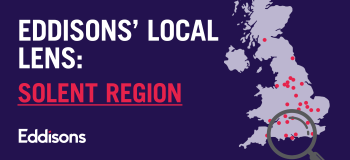21/02/2024
Insights
How cities impact global emissions
According to The World Bank, cities across the world are responsible for over 70% of the global greenhouse gas emissions, highlighting the responsibility that individual councils must harbour in the universal attempt to achieve carbon neutrality.
As the UK’s ambitious 2050 Net Zero target rapidly approaches, local authorities and cities have individually set their own even more strenuous goals, bringing forward the proposed date they will reach net zero.
In order to achieve these targets, radical changes to our infrastructure and overall approach to urban planning will have to be developed, moving away from our societal reliance on fossil fuels.
This naturally leads us to one question: how achievable are these targets?
Net Zero definition
Becoming Net Zero is the process of offsetting your greenhouse emissions produced by directly removing the equivalent amount of emissions out of the atmosphere through the use of schemes and procedures.
These processes are implemented to reduce carbon emissions, otherwise known as decarbonisation. Examples include reforestation, carbon capture, and electrification to name but a few.
Net Zero targets across the UK
There are a number of cities across the UK that have pledged to achieve Net Zero ahead of the government target.
The Race to Zero is a global campaign ran by The United Nations Framework Convention on Climate Change. The aim is to rally 'non-state actors' such as cities, regions and companies to halve global emissions by 2030 with a total of 64 individual councils representing the UK.
Of the 64, a number of regions have set a closer date than 2050 in achieving net zero. 2030 is a popular proposal date and many cities such as Liverpool, London and Glasgow have committed to this closer time scale.
Nottingham has set the UK's earliest net zero target of 2028, making it one of the most ambitious cities globally, with only Copenhagen and Adelaide having set closer goals for 2025.
Who is most likely to achieve their target?
Forbes Advisory has conducted their own extensive research, ranking and comparing regions who are most and least likely to succeed in meeting their proposed target.
Major determining factors in their research include the increase in uptake of electric vehicles (EVs) and the rollout of EV charging stations, e-bike schemes and population walking levels , how ‘green’ the area is in terms of woodland coverage, and overall carbon emission levels.
Leeds was the number one region to most likely achieve their net zero target of 2030, with Barnet of Greater London and Birmingham taking up the second and third spots.
Middlesbrough, Southampton and Stoke-on-Trent, on the other hand, were ranked the three least encouraging regions for Net Zero. With consistently low upticks in EV registrations across the three regions, even despite of increased EV infrastructure in Middlesbrough and Stoke-on-Trent, their low ranks may have more socioeconomic impacts.
Eddisons
At Eddisons, we specialise in providing sustainable solutions, helping clients develop their decarbonisation plans.
Regardless of your objectives, our dedicated decarbonisation team is on hand to advise you on how to meet Net Zero targets. From the initial decarbonisation planning process, assistance with funding applications and guidance on financing options, through to the actual implementation of energy and cost saving initiatives.






